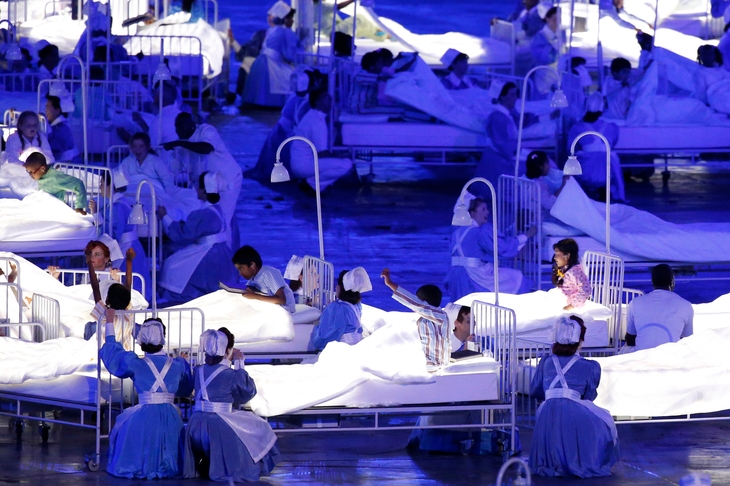Nigel Lawson once wrote that ‘the National Health Service is the closest thing the English have to a religion’. It’s a justly celebrated line because it rings so true – though the second half of the sentence, even more uncomfortably true, is invariably left out: ‘… with those who practise in it regarding themselves as a priesthood’.
This summer, adherents of our national quasi-religion are marking the 70th anniversary of its foundation by St Aneurin Bevan. The ceremonies – less preposterous but just as intense as Danny Boyle’s tribute to the NHS in Britain’s Olympic opening ceremony – have the unqualified blessing of our actual religions. For example, Liverpool’s Catholic Cathedral, from whose pulpit the UK’s public sector is regularly sanctified, has already held a Choral Evening Prayer of thanksgiving for the NHS.
How did a secular model of delivering health care acquire this aura of holiness? And why is it necessary to demonise commentators who propose alternative models of funding? These are questions you’re unlikely to hear asked by the NHS-worshipping BBC.

Get Britain's best politics newsletters
Register to get The Spectator's insight and opinion straight to your inbox. You can then read two free articles each week.
Already a subscriber? Log in







Comments
Join the debate for just £1 a month
Be part of the conversation with other Spectator readers by getting your first three months for £3.
UNLOCK ACCESS Just £1 a monthAlready a subscriber? Log in